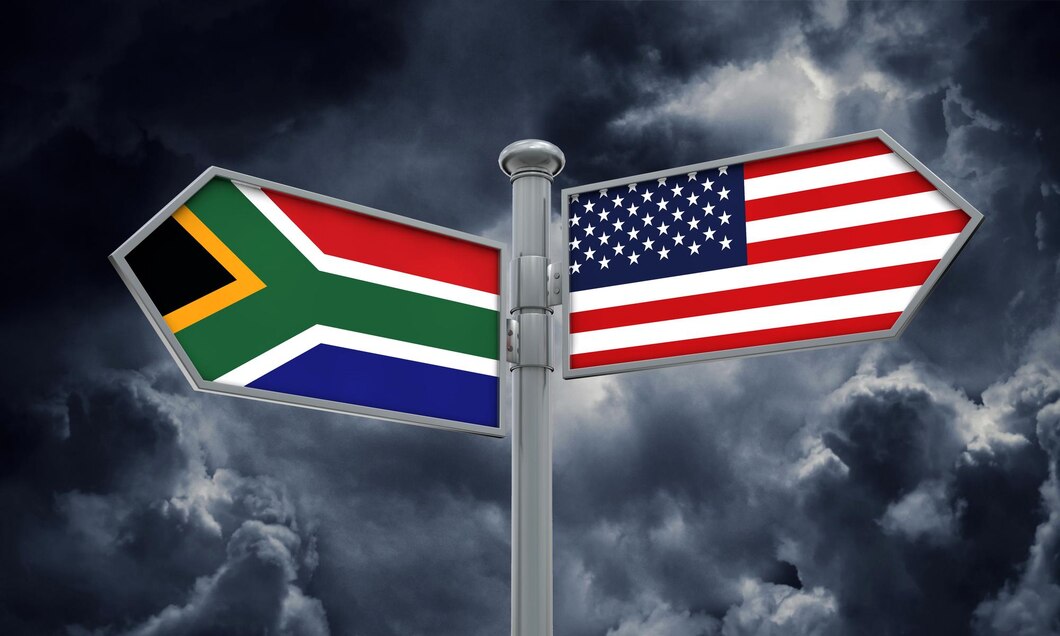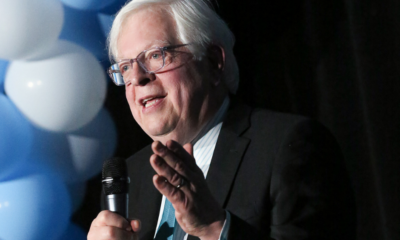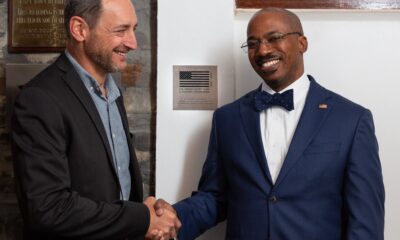
World

SA in US headlights with foreign policy
American politicians are calling for the United States (US) to review its bilateral relations with South Africa, which may have dire economic and political consequences for Pretoria and its backing of Hamas, Russia, and China.
If the South African government thought that its foreign policy choices were passing unnoticed across the Atlantic, it should think again, according to political experts.
For the third time in the past year, little-known backbenchers in the US House of Representatives – one each from the Democrats and Republicans – are introducing a bill critical of Pretoria’s international position. This time, they are calling for a full review of the relationship between the US and the Rainbow Nation.
“This is dangerous for South Africa and South Africans,” said Professor Hussein Solomon from the University of the Free State. “But I don’t think the ANC [African National Congress] understands or cares about the strategic importance of relations with the US.
“When we embarked on an action like taking Israel to the International Court of Justice [ICJ] on genocide charges, we should have thought through the consequences. If you are a mouse, don’t go tackle the lion. South Africa lacks a view of where we stand in the pecking order.”
The proposed “US-South Africa Bilateral Relations Review Act” contends that the actions of the ANC government aren’t consistent with its stated policy of not taking sides in international affairs and are against US security and foreign policy interests. It mentions South Africa’s “history of siding with malign actors” – those considered evil in nature or effect.
On Hamas, the bills said the ANC since 1994 had taken “a hardline stance of consistently accusing Israel of practicing apartheid”. It mentions the government’s actions since 7 October 2023, listing “a variety of antisemitic and anti-Israel-related statements and actions”, including the department of international relations and cooperation (Dirco’s) comments that the attacks were provoked through “continued illegal occupation of Palestine (sic) land, continued settlement expansion, desecration of the Al Aqsa Mosque and Christian holy sites, and ongoing oppression of the Palestinian people”.
It also cites President Cyril Ramaphosa’s remarks accusing Israel of genocide. International Relations Minister Dr Naledi Pandor’s phone call with Hamas; her visit to Tehran; and her calls for Israeli Prime Minister Benjamin Netanyahu to be indicted for war crimes by the International Criminal Court are detailed. It called the ICJ case “flawed” and “a politically motivated suit”. South Africa is too close to Iran and its proxy, Hamas, for America’s liking.
The bill also lists South Africa’s “increasingly close relations with the Russian Federation” including the joint military exercises with Russia and China in February 2023; the docking of the US-sanctioned Lady R in Simon’s Town and its arms transfers; Pretoria “reneging on its initial call for the Russian Federation to immediately withdraw its forces from Ukraine and actively seeking improved relations with Moscow since February 2022”; and “dispatching multiple high-level official delegations to Russia to further political, intelligence, and military co-operation”.
On China, the bill criticises ANC and government interactions with the Chinese Communist Party (CCP), “who are committing gross violations of human rights in the Xinjiang province and implement economically coercive tactics around the globe”, which it says are inconsistent with the rights enshrined in South Africa’s Constitution and US interests. It cites examples such as South Africa hosting Chinese-government-aligned Confucius Institutes to spread pro-China propaganda; participation in a CCP-funded political training school in Tanzania that targets “the next-generation of African leaders and attempts to export the CCP’s system of party-run authoritarian governance to the African continent”; and support for China’s grand global infrastructure project, the Belt and Road Initiative. It also criticises South Africa’s relations with Chinese technology firms such as Huawei, ZTE, and Hikvision, which are said to pose a threat to US security interests.
Analysts are divided over this bill and its effects. Said Solomon, “If the chief rabbi is right, there’s state capture of South African foreign policy by Iran. It was up for sale. The West doesn’t see South Africa as an ally. It sees us as on the decline – our ports, our railways, our electricity grid are dysfunctional. You cannot project even soft power in the world if you can’t get these things right at home. To be frank, I simply cannot explain South African foreign policy at the moment.”
Terence Corrigan from the Institute of Race Relations said, “The ANC has for decades seen the US and the West as an essentially enemy force, though in government for the first decade post-1994, it was able to nuance this sufficiently to maintain generally cordial relations. The decline in the capacity of the ANC has resulted in it defaulting to the territory it knows best and on which it’s most comfortable: ideology. This is fundamentally more important to the ANC, and to the government it heads, than trade and investment or socio-economic upliftment. In the BRICS organisation [Brazil, Russia, India, China, South Africa, Egypt, Ethiopia, Iran, Saudi Arabia, and the United Arab Emirates], it has found a thin narrative that allows it to believe – or at least proclaim – that there are economic alternatives to its major trade and investment interlocutors. This bill is probably unlikely to gain significant traction, though it signifies that South Africa can expect a frostier reception in Western capitals. Still, South Africa seems either not to realise or not to care that it has been placing its relationships with the West in jeopardy.”
“We have no specific information on this, but aren’t surprised. There are consequences to the way the US and its allies are treated by South Africa,” said Zev Krengel, the president of the South African Jewish Board of Deputies.
Gustavo de Carvalho, a senior researcher at the South African Institute of International Affairs said, “I see risks to the US in this bill. It will have a spillover effect in the Global South about how to engage with the US, and will consolidate global divides. The US needs minerals from South Africa, particularly platinum, chrome, and manganese. Obviously, there are economic risks for South Africa, including lost business in minerals and automotive manufacturing. But this bill may have the opposite effect of driving South Africa and other developing countries closer to China, Russia, and Hamas.”
Dirco spokesperson Clayson Monyela dismissed the bill as inconsequential. He told The Mail and Guardian, “We know for a fact that the US government doesn’t share the views of the individuals behind this bill. We’re confident that it won’t go anywhere. We continue to engage, share information, and co-operate with the US at bilateral and multilateral fora to deepen the already strong ties between our two countries politically, economically, and work together to respond to global developments.”
Whether the bill passes or not, it’s yet another sign of South Africa’s complex and strained relationship with the US, partly caused by its foreign policy decisions. There may be serious consequences for millions of citizens if South Africa is frozen out of the African Growth and Opportunity Act, which benefits jobs and livelihoods across the country. South Africa’s “free pass” on the international stage may be reaching its expiry date.










